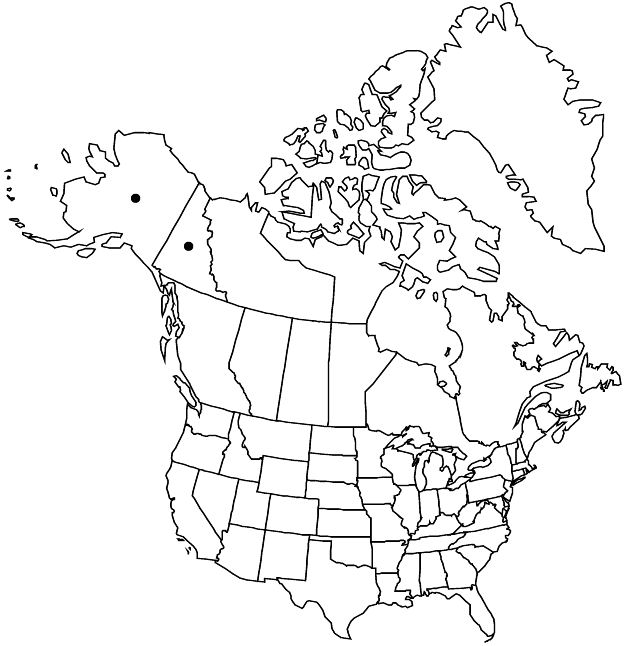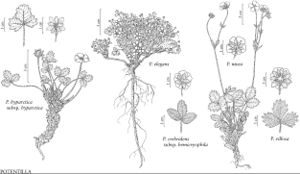Difference between revisions of "Potentilla crebridens subsp. hemicryophila"
in A. I. Tolmatchew, Fl. Arct. URSS 9(1): 318. 1984.
FNA>Volume Importer |
imported>Volume Importer |
||
| (6 intermediate revisions by 2 users not shown) | |||
| Line 1: | Line 1: | ||
{{Treatment/ID | {{Treatment/ID | ||
|accepted_name=Potentilla crebridens subsp. hemicryophila | |accepted_name=Potentilla crebridens subsp. hemicryophila | ||
| − | |accepted_authority=Jurtzev | + | |accepted_authority=Jurtzev |
|publications={{Treatment/Publication | |publications={{Treatment/Publication | ||
|title=in A. I. Tolmatchew, Fl. Arct. URSS | |title=in A. I. Tolmatchew, Fl. Arct. URSS | ||
| Line 9: | Line 9: | ||
|special_status={{Treatment/ID/Special_status | |special_status={{Treatment/ID/Special_status | ||
|code=F | |code=F | ||
| − | |label= | + | |label=Illustrated |
}} | }} | ||
|basionyms= | |basionyms= | ||
| Line 15: | Line 15: | ||
|name=Potentilla matsuokana subsp. hemicryophila | |name=Potentilla matsuokana subsp. hemicryophila | ||
|authority=(Jurtzev) Soják | |authority=(Jurtzev) Soják | ||
| + | |rank=subspecies | ||
}} | }} | ||
|hierarchy=Rosaceae;Rosaceae subfam. Rosoideae;Rosaceae tribe Potentilleae;Potentilla;Potentilla sect. Niveae;Potentilla crebridens;Potentilla crebridens subsp. hemicryophila | |hierarchy=Rosaceae;Rosaceae subfam. Rosoideae;Rosaceae tribe Potentilleae;Potentilla;Potentilla sect. Niveae;Potentilla crebridens;Potentilla crebridens subsp. hemicryophila | ||
| Line 30: | Line 31: | ||
|elevation=0–1500 m | |elevation=0–1500 m | ||
|distribution=Yukon;Alaska;Asia (Russian Far East;Siberia). | |distribution=Yukon;Alaska;Asia (Russian Far East;Siberia). | ||
| − | |discussion=<p>Nearly half of the Alaska and Yukon (Beringian) specimens previously assigned to Potentilla nivea belongs to P. crebridens subsp. hemicryophila, which is tetraploid; P. nivea is high polyploid. Intermediates were not seen, and the two species may be reproductively isolated by the ploidal difference. See B. A. Jurtzev (1984) for additional character differences.</p> | + | |discussion=<p>Nearly half of the Alaska and Yukon (Beringian) specimens previously assigned to <i>Potentilla nivea</i> belongs to <i>P. crebridens </i>subsp.<i> hemicryophila</i>, which is tetraploid; <i>P. nivea</i> is high polyploid. Intermediates were not seen, and the two species may be reproductively isolated by the ploidal difference. See B. A. Jurtzev (1984) for additional character differences.</p> |
|tables= | |tables= | ||
|references= | |references= | ||
| Line 39: | Line 40: | ||
-->{{#Taxon: | -->{{#Taxon: | ||
name=Potentilla crebridens subsp. hemicryophila | name=Potentilla crebridens subsp. hemicryophila | ||
| − | + | |authority=Jurtzev | |
| − | |authority=Jurtzev | ||
|rank=subspecies | |rank=subspecies | ||
|parent rank=species | |parent rank=species | ||
| Line 53: | Line 53: | ||
|publication title=in A. I. Tolmatchew, Fl. Arct. URSS | |publication title=in A. I. Tolmatchew, Fl. Arct. URSS | ||
|publication year=1984 | |publication year=1984 | ||
| − | |special status= | + | |special status=Illustrated |
| − | |source xml=https:// | + | |source xml=https://bitbucket.org/aafc-mbb/fna-data-curation/src/2e0870ddd59836b60bcf96646a41e87ea5a5943a/coarse_grained_fna_xml/V9/V9_298.xml |
|subfamily=Rosaceae subfam. Rosoideae | |subfamily=Rosaceae subfam. Rosoideae | ||
|tribe=Rosaceae tribe Potentilleae | |tribe=Rosaceae tribe Potentilleae | ||
Latest revision as of 22:55, 5 November 2020
Plants ± tufted. Caudex branches slender to stout, not columnar, not sheathed with marcescent whole leaves. Stems ascending to erect, 0.8–2 dm, lengths 2–3(–4) times basal leaves. Basal leaves 3–8 cm; petiole 0.5–5 cm, cottony hairs usually dense, sometimes sparse, other hair types and glands absent or obscured; leaflets ± overlapping, central obovate, 0.6–2 × 0.5–1.2 cm, subsessile, base cuneate, margins slightly revolute, distal 3/4 to nearly whole length incised 1/4–1/3(–1/2) to midvein, teeth (3–)5–8(–12) per side, approximate, surfaces ± to strongly dissimilar, abaxial ± white, long hairs 0.7–1.2 mm, cottony-crisped hairs usually dense, adaxial green to grayish green, long hairs sparse to abundant, short and/or crisped hairs sparse to abundant. Cauline leaves 0–1. Inflorescences 1–6-flowered. Pedicels 1–1.5 cm in flower, to 3 cm in fruit. Flowers: epicalyx bractlets linear, 3–5 × 0.2–0.6 mm, usually less than 1/4 as wide as sepals, margins flat, red glands absent; hypanthium 4–4.5 mm diam.; sepals 5–6 mm, apex acute; petals 5–7 × 5–8 mm, slightly longer than sepals; filaments 1 mm, anthers 0.4 mm; carpels 25–30, apical hairs absent, styles columnar, not or ± papillate-swollen on less than proximal 1/5, 0.9–1.1 mm. Achenes 1.1 mm. 2n = 28 (Russian Far East).
Phenology: Flowering summer.
Habitat: Dry alpine ridges and meadows, well-drained slopes, rocky outcrops, scree, on calcareous bedrock
Elevation: 0–1500 m
Distribution

Yukon, Alaska, Asia (Russian Far East, Siberia).
Discussion
Nearly half of the Alaska and Yukon (Beringian) specimens previously assigned to Potentilla nivea belongs to P. crebridens subsp. hemicryophila, which is tetraploid; P. nivea is high polyploid. Intermediates were not seen, and the two species may be reproductively isolated by the ploidal difference. See B. A. Jurtzev (1984) for additional character differences.
Selected References
None.
